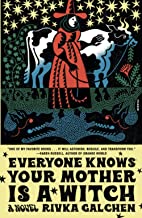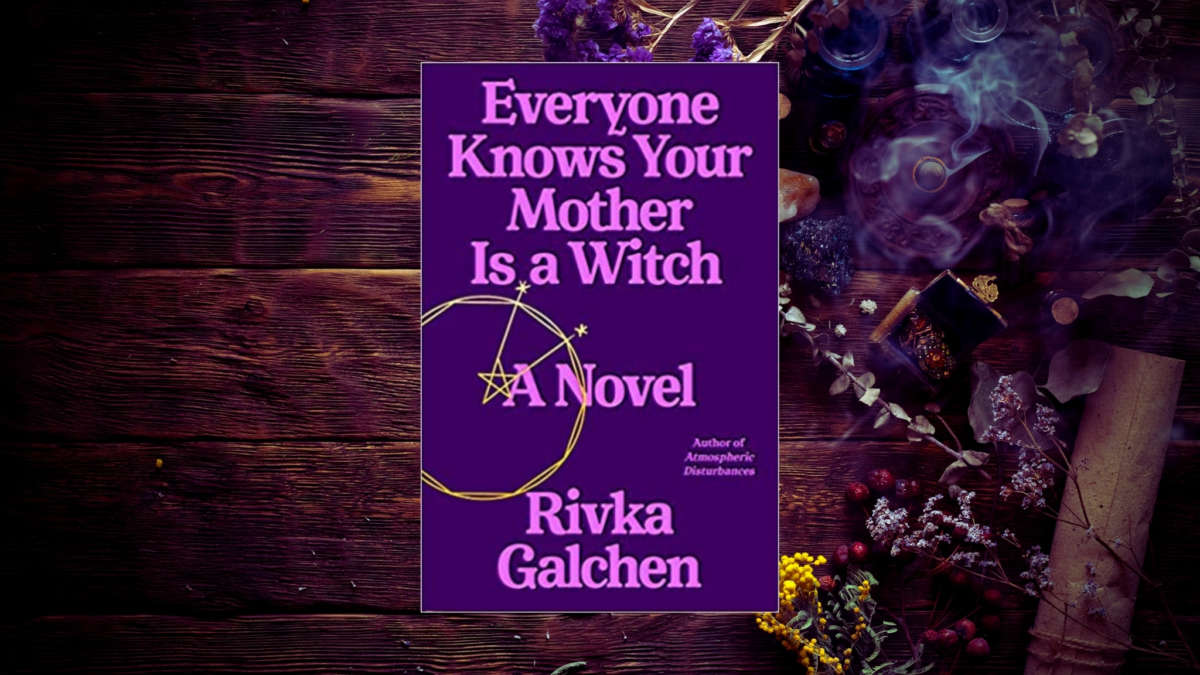Everyone Knows Your Mother Is a Witch by Ricka Galchen
Everyone Knows Your Mother Is a Witch (Farrar, Straus and Giroux), a work of historical fiction from Rivka Galchen, is a darkly humorous, surrealist and riveting tale about hysteria and group think. Set in Germany in the early 1600s with the Thirty Years’ War and the Plague ravaging the country, herbalist widow Katharina finds herself accused of witchcraft by a fellow townswoman who claims Katherina gave her a drink that made her ill. Illiterate, Katherina relays the story of the accusation and subsequent persecution to a neighbor, Simon the Saddlemaker, who must legally act as her guardian because she’s female.
Soon, what one character calls “the destructive power of rumor” takes hold, and Jerg the six-fingered baker reports how Katharina allegedly “rode a goat backward to death.” New accusers surface by the minute, and Galchen weaves their accounts into her narrative; false testimony brings the threat of bringing “God’s anger on [one’s] earthly life” and delivering one’s soul to Satan. In spite of this warning, the townspeople twist everyday occurrences into instances of terrifying malice.
HUMOR AMIDST REAL-LIFE DRAMA
Galchen based her story on historical documents. Katharina was the real-life mother of Johannes Kepler, the Imperial Mathematician to the Holy Roman Emperor and the author of the laws of planetary motion. In the book, Kepler tears himself from his work in order to come to his mother’s defense. Themes of science and reason versus mysticism abound, and most of the characters live in constant states of low-grade anxiety. Katharina herself harbors any number of suspicions about the natural world, commenting, for example: “So much ill fortune follows from eating strawberries, which grow close to the ground where the vapors are stale.” This is a world in which little can be trusted as empirically true.
In spite of this bleak set-up, Everyone Knows is laced with wry humor, in large part thanks to Katharina’s spiky and headstrong personality. Even tiny moments sparkle. For example, entering the office of the court, she says, “a very short peasant was in line ahead of us … His eyes were watering. His hands trembled. His fingers were blistered. A poultice of wolfsbane would likely have helped him.”
EXCAVATING AND MODERNIZING THE PAST
Katharina proves to be a marvelous character, declaring she “won’t leave town like a reprimanded dog.” Her headstrong nature once served her well. Describing when she first moved in, for example, Simon recounts an anecdote about how his house was flooded but hers was spared because of quick thinking; acting “as decisive as a ship captain,” she ordered three young men to dig a channel and divert the water. He concludes, “Her intrusive nature had this resplendent underside.”
Warnings applicable to the modern age abound, for Galchen teases out lessons about ageism, feminism and the persecution of those who dare to present themselves as different. Fans of Hilary Mantel’s work and Maggie O’Farrell’s Hamnet will delight in Galchen’s prodigious talent at excavating and modernizing the past in this clever and chilling yarn.
RELATED POSTS
ITW Spotlight: Chris Bohjalian Pens His Timeliest Novel Yet in “The Hour of the Witch”
Hoffman’s Latest Magic Prequel Full of 1600s Lore and Modern Relevance





